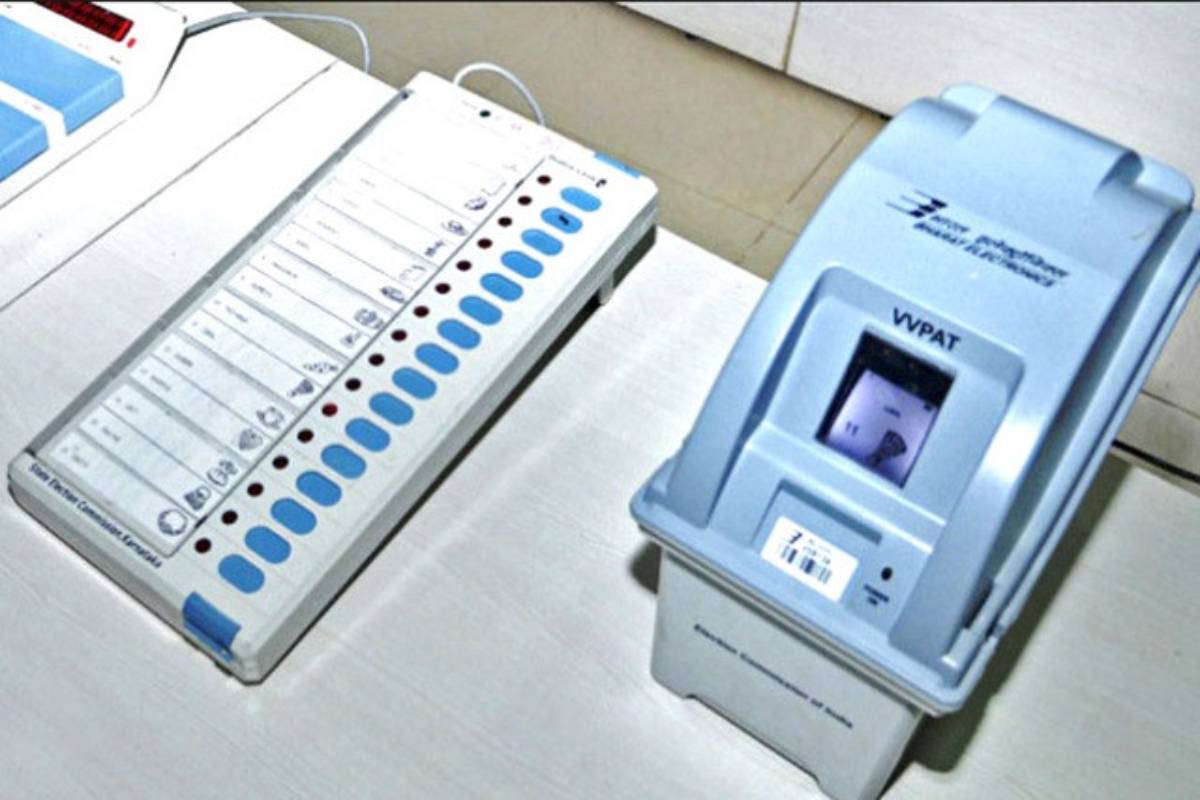The Supreme Court on Tuesday sounded averse to going back to ballot paper system for casting votes, stating that the introduction of the human intervention will create problems, and exhorted to repose trust and faith in the prevailing system and not to bring it down.
As the advocate Prashant Bhushan appearing for the NGO Association for Democratic Reforms batted for going back to the exercise of vote through ballot papers, Justice Sanjiv Khanna heading a bench also comprising Justice Dipankar Datta said, “We are in our 60s. We all know what happened when there were ballot papers, you may have, but we have not forgotten.”
Advertisement
As Bhushan referred to booth capturing, Justice Khanna said, “We are not on booth capturing, there were other things … human intervention is going to create problems…”
Advertisement
Justice Khanna said, “Normally human interventions lead to problems and human weakness can be there which includes biases as well. Machines normally without human intervention will give you accurate results. Yes, the problem arises when there is human intervention or makes unauthorised changes when they are around the software or machine. If you have any suggestion to avert this, then you can give us that.”
The bench appeared having some reservation in terms of time it would consume, when Bhushan said that in the present system of casting votes through EVMs, a voter should be permitted to have a look at the slip generated by the Voter Verifiable Paper Audit Trail (VVPAT) to ascertain whether the vote cast by him has been correctly recorded, before the slip is dropped in the box.
The bench appeared unimpressed as Bhushan argued that European countries like Germany that had opted for the EVMs have returned to the paper ballots. Justice Khanna pointed out that Germany has about 5 to 6 crores, whereas in India there are about 97 crore registered voters. Justice Datta too added, “My home state West Bengal has more population than Germany. We need to repose some trust and faith in somebody. Do not try to bring down the system like this.”
When senior advocate Gopal Sankaranarayanan, appearing for one of the petitioners, pointed to the discrepancies in the number of votes that were cast in 2019 and those counted in some places, Justice Khanna said that when you do hand counting, there will be different numbers in the counting.
Sankaranarayanan said that this discrepancy point was taken note of by a parliamentary committee, but in the last four years since then the Election Commission has not responded to it.
When the bench said that candidates in the fray know how many votes were cast and the numbers that emerged after the counting, Gopal Sankaranarayanan said that he was not on the candidates and was on the fundamental right of a voter to know whether his vote has been correctly recorded or not. He pointed out any inquiry by the voter on this count has been saddled with penal offences making the complainant liable with six months sentence or a fine, if he goes wrong.
In the course of the hearing, the bench asked a number of questions to the Election Commission of India (ECI) whether CCTV cameras are installed at all polling booths. The bench was informed by the poll panel that the CCTV cameras are installed in 50 percent of polling booths.
However, in an important question having bearing on the conduct of free and fair election, the bench asked whether there is any law providing for punishment to the officials and authorities for manipulating EVMs and said that unless there is fear of stringent punishment, there is always possibility of a manipulation.
“Suppose there is some manipulation, what is the punishment prescribed. That is a serious thing. There should be a fear that if something wrong is done then there will be punishment”, the bench told senior advocate Maninder Singh appearing for the poll panel.
The top court was hearing a plea by the Association for Democratic Reforms and others seeking more extensive cross verification of EVMs data against VVPAT records. At present it is just two percent of the total polling booths in a constituency where this exercise is undertaken.
Since the hearing lasting over two hours remained inconclusive today, the bench posted the matter for further hearing on Thursday.
Advertisement











